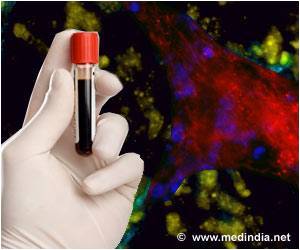Gene-modified stem cells guard patients from the toxic effects of chemotherapy, shows study.

Kiem, a member of the Clinical Research Division at the Hutchinson Center, said that a major barrier to effective use of chemotherapy to treat cancers like glioblastoma has been the toxicity of chemotherapy drugs to other organs, primarily bone marrow. This results in decreased blood cell counts, increased susceptibility to infections and other side effects. Discontinuing or delaying treatment or reducing the chemotherapy dose is generally required, but that often results in less effective treatment.
In the current study, Kiem and colleagues focused on patients with glioblastoma, an invariably fatal cancer. Many of these patients have a gene called MGMT (O6-methylguanine-DNA-methyltransferase) that is turned on because the promoter for this gene is unmethylated. MGMT is a DNA repair enzyme that counteracts the toxic effect of some chemotherapy agents like temozolomide. Patients with such an unmethylated promoter status have a particularly poor prognosis.
A drug called benzylguanine can block the MGMT gene and make tumor cells sensitive to chemotherapy again, but when given with chemotherapy, the toxic effects of this combination are too much for bone marrow cells, which results in marrow suppression.
By giving bone marrow stem cells P140K, which is a modified version of MGMT, those cells are protected from the toxic effects of benzylguanine and chemotherapy, while the tumor cells are still sensitive to chemotherapy. "P140K can repair the damage caused by chemotherapy and is impervious to the effects of benzylguanine," Kiem said.
"This therapy is analogous to firing at both tumor cells and bone marrow cells, but giving the bone marrow cells protective shields while the tumor cells are unshielded," said Jennifer Adair, Ph.D., who shares first authorship of the study with Brian Beard, Ph.D., both members of Kiem's lab.
Advertisement
"Glioblastoma remains one of the most devastating cancers with a median survival of only 12 to 15 months for patients with unmethylated MGMT," said Maciej Mrugala, M.D., the lead neuro oncologist for this study.
Advertisement
The researchers also found that chemotherapy increased the number of gene-modified blood and bone marrow cells in these patients. Kiem said this finding will have implications for other stem cell gene therapy applications where defective bone marrow stem cells can be corrected by gene therapy but their numbers need to be increased to produce a therapeutic benefit, or for patients with HIV/AIDS to increase the number of HIV-resistant stem and T cells.
Source-Eurekalert















